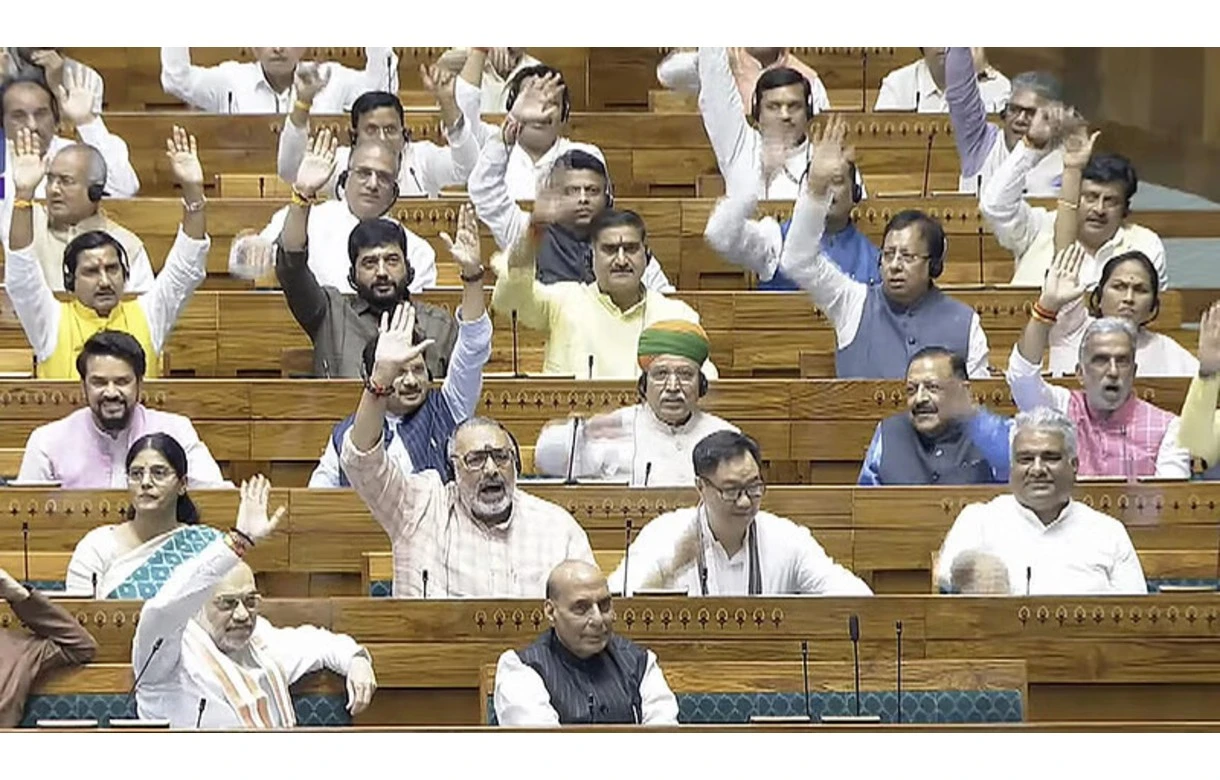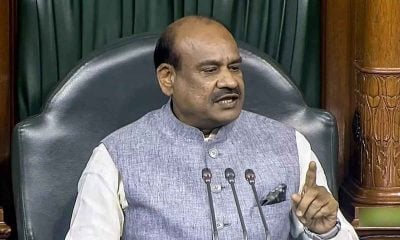After more than 12 hours of debate, the Lok Sabha on Wednesday passed the Waqf (Amendment) Bill, 2025, by 288 votes in favour and 232 against.
The bill, introduced earlier in the day by Union Minority Affairs Minister Kiren Rijiju, aims to enhance the management of Waqf properties, leverage technology for transparency, and resolve administrative complexities, as recommended by a Joint Parliamentary Committee (JPC).
Rijiju hailed the JPC’s consultation process as the most extensive in India’s parliamentary history, noting that it received over 97.27 lakh petitions and memorandums through physical and online channels. “Each submission was carefully reviewed before finalizing the report,” he said, underscoring the thoroughness of the exercise.
However, the Bill’s passage was far from smooth. Union Home Minister Amit Shah robustly defended the legislation, accusing the Opposition of spreading “fear-mongering for vote-bank politics” by claiming it interferes with Muslims’ religious affairs and property rights.
“No land can be declared Waqf property by mere declaration. Lands belonging to the Archaeological Survey of India, governments, tribal communities, and private citizens will be safeguarded by this law. All Muslim communities—Shia, Pasmanda, Ahmadiya, Bohras—can register trusts without going through the Waqf route,” Shah clarified during the debate.
He dismissed Opposition allegations that laws like the Citizenship Amendment Act (CAA), the abrogation of Article 370, the Triple Talaq ban, and the Ram Mandir construction had stripped Muslims of citizenship, challenging critics to provide evidence. “Look at Jammu and Kashmir—Omar Abdullah is ruling as Chief Minister,” he pointed out, countering the narrative.
Shah also invoked RJD chief Lalu Yadav’s 2013 remarks, where Yadav had called for a strong law to curb thefts in the name of Waqf properties. “You couldn’t fulfill his wish, but Narendra Modi has. This bill will apply retrospectively,” Shah declared, asserting that the Modi government was pursuing a “politics of progress.” He confidently predicted, “Modi has been elected for three terms, and for the next three terms, it will be a BJP government.”
Speaking in the Lower House, Congress MP Gaurav Gogoi, the Deputy Leader of Opposition in the Lok Sabha, accused the government of using the Bill to “weaken the Constitution, defame minorities, divide Indian society, and disenfranchise marginalized groups.”
He challenged Rijiju’s claim that the UPA government had transferred 123 properties to the Delhi Waqf Board before the 2014 elections, labeling it “a complete lie” and demanding proof. “Rijiju misled the House with political accusations,” Gogoi charged, also criticizing Speaker Om Birla for not intervening.
Rijiju retorted by asking Gogoi to specify which part of his statement was inaccurate. “Don’t make blanket accusations; point to the exact issue,” he urged. Gogoi doubled down, reiterating his objection to Rijiju’s 2013 references.
Congress MP KC Venugopal took a broader swipe, accusing the Centre of an “agenda to destroy minorities.” Without naming Prime Minister Narendra Modi, he warned, “Today you target Muslims, tomorrow Christians, and the day after, Sikhs. You are dividing the country for political gain in the name of religion, even as you project yourself as a world leader abroad. The world is watching.”
Samajwadi Party leader Akhilesh Yadav accused the BJP of introducing the Bill to distract from its past failures, questioning their commitment to women’s empowerment by asking how many female candidates they would field in the upcoming Uttar Pradesh elections. He cautioned that the bill threatened India’s secular fabric.
Speaking to reporters, Aam Aadmi Party leader Sanjay Singh and MLA Amanatullah Khan also voiced strong objections. Khan questioned Shah’s claims about the prime locations of 130 Waqf properties, hinting at a BJP plot to seize them, citing past encroachments on Muslim graveyards and buildings. Singh called the bill “illegitimate,” alleging it was designed to incite violence ahead of assembly elections in Bihar and West Bengal, purely to create controversy.


 India News4 hours ago
India News4 hours ago
 India News5 hours ago
India News5 hours ago
 LATEST SPORTS NEWS4 hours ago
LATEST SPORTS NEWS4 hours ago
 India News4 hours ago
India News4 hours ago
















